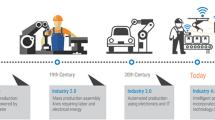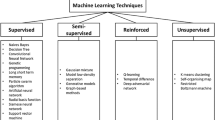Abstract
Serving individual customer needs at reasonable prices can be a profitable target market in high-wage countries. The dilemma between scale and scope-oriented production is one major research topic within the Cluster of Excellence “Integrative Production Technology for High-Wage Countries” at the RWTH Aachen University. One main objective of this project is to bridge the existing gap between individual manufacturing and mass production. Modularization is a widely accepted approach in tool-based manufacturing processes. In this paper, we propose a flexible design methodology for modular tools and dies. The methodology will assist the design engineer in setting up a series of modularized tools in a conceptually closed manner. The described methodology covers modularization in a broad sense, i.e. it includes hardware modularization as well as modularization of the construction process. The methodology consists of three phases: initiation, analysis and design phase.





Similar content being viewed by others
References
Kinkel S (2005) Anforderungen an die Fertigungstechnik von morgen. Mitteilungen aus der Produktionsinnovationserhebung. Fraunhofer ISI, Karlsruhe
Schuh G (2005) Produktkomplexität managen, 2nd edn. Carl Hanser, Munich
Schuh G, Klocke F, Brecher C, Schmidt R (2007) Excellence in Production. Apprimus Wissenschaftsverlag, Aachen
Queudeville Y et al (2009) Decision and design methodologies for the lay-out of modular dies for high-pressure-die-cast-processes. Mater Sci Forum 618–619:345–348. doi:10.4028
Eitelwein O, Weber J (2008) Unternehmenserfolg durch Modularisierung von Produkten. Prozessen und Supply Chains. Book on Demand GmbH, Norderstedt
Fixon SK (2007) Modularity and commonality research: past developments and future opportunities. Concurr Eng 15(2):85–111. doi:10.1177/1063293X07078935
Gershenson JK, Prasad GJ, Zhang Y (2003) Product modularity: definitions and benefits. J Eng Des 15:33–51. doi:10.1080/0954482031000091068
Göpfert J (1998) Modulare Produktentwicklung. Zur gemeinsamen Gestaltung von Technik und Organisation. Disseration, University of Munich
Pahl G, Beitz W, Feldhusen J, Grote KH (2007) Pahl/Beitz Konstruktionslehre: Grundlagen erfolgreicher Produktentwicklung. Springer, Heidelberg
Ulrich KT (1995) The role of product architecture in the manufacturing firm. Res Policy 24:419–440. doi:10.1016/0048-7333(94)00775-3
Mikkola JH, Gassmann O (2003) Managing modularity of product architectures: toward an integrated theory. IEEE Trans Eng Manage 50(2):204–218. doi:10.1109/TEM.2003.810826
Boos W (2008) Methodik zur Gestaltung und Bewertung von modularen Werkzeugen. Apprimus Wissenschaftsverlag, Aachen
Porter ME (1999) Wettbewerbsstrategie: Methoden zur Analyse von Branchen und Konkurrenten, 10th edn. Campus Verlag, Frankfurt on the Main
Pfeifer T (2001) Qualitätsmanagement. Strategien, Methoden, Techniken. Carl Hanser Verlag, Munich, Vienna
Lindemann U, Maurer M, Braun T (2009) Structural complexity management: an approach for the field of product design. Springer Verlag, Heidelberg
Acknowledgments
The authors would like to thank the German Research Foundation DFG for the support of the depicted research within the Cluster of Excellence “Integrative Production Technology for High-Wage Countries”.
Author information
Authors and Affiliations
Corresponding author
Rights and permissions
About this article
Cite this article
Queudeville, Y., Ivanov, T., Vroomen, U. et al. Design methodology for modular tools. Prod. Eng. Res. Devel. 5, 351–358 (2011). https://doi.org/10.1007/s11740-011-0318-x
Received:
Accepted:
Published:
Issue Date:
DOI: https://doi.org/10.1007/s11740-011-0318-x




